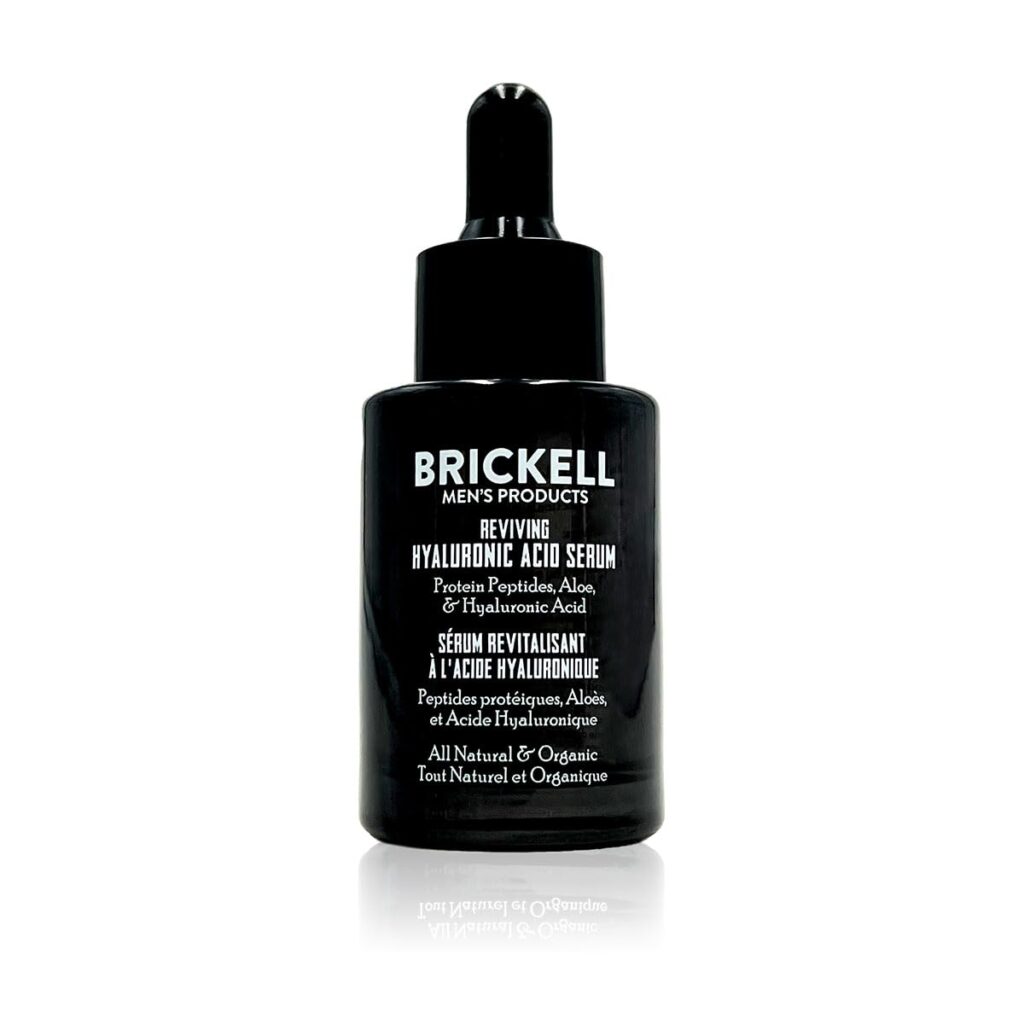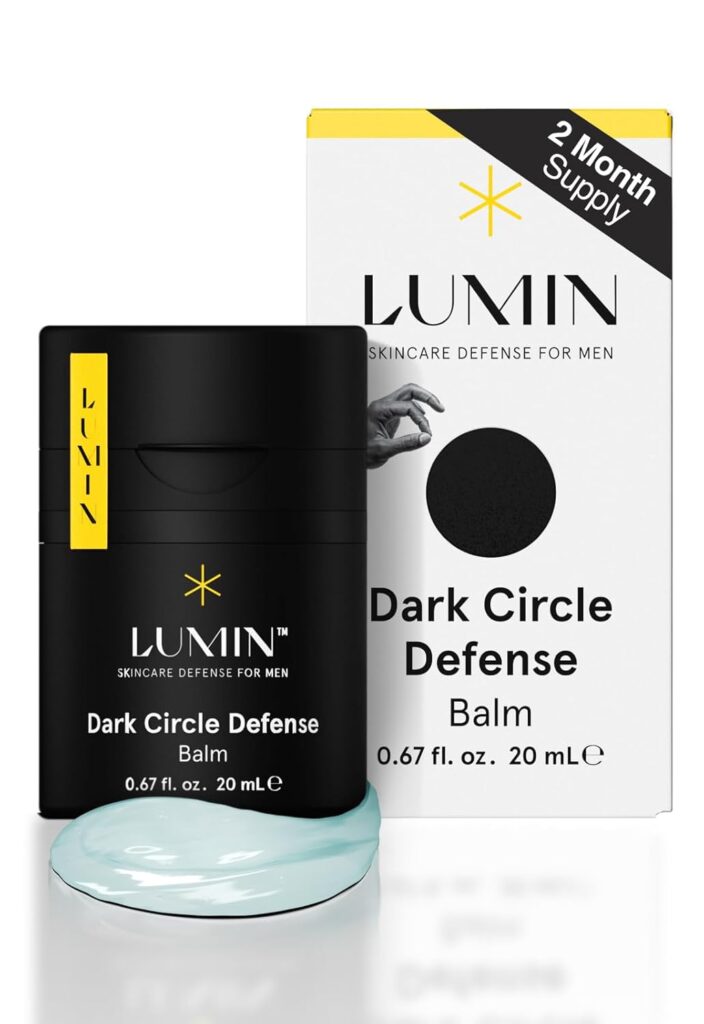Men’s skin has unique characteristics—it’s typically thicker, oilier, and more collagen-dense than women’s. While that might delay visible signs of aging, it also means we need skincare products that can penetrate more deeply and deliver results without clogging pores or causing irritation.
The best anti-aging serums for men are formulated with this in mind. They address common skin concerns like wrinkles, dullness, and puffiness while delivering scientifically proven ingredients in textures that work for our skin type.
Key Ingredients in Effective Anti-Aging Serums
Retinol: The Gold Standard
Retinol, a derivative of vitamin A, is widely considered one of the most effective ingredients for anti-aging. It increases cell turnover, stimulates collagen production, reduces fine lines, and improves skin texture.
A study in Archives of Dermatology found that retinol use improves collagen levels in both young and mature skin. That makes it a great pick whether you’re just starting to prevent signs of aging or trying to reverse deeper lines.

If you’re new to retinol and want something effective but beginner-friendly, check out Brickell Men’s Reviving Day Serum. It includes a gentle retinol blend, peptides, and hyaluronic acid in a lightweight, non-greasy formula designed specifically for men. You can find it here on Amazon.
Peptides: Collagen Boosters
Peptides are short amino acid chains that signal your skin to create more collagen and elastin. The result? Firmer skin, fewer wrinkles, and improved elasticity.
One well-researched peptide is Matrixyl, which has been shown to nearly double collagen production in human skin cells. This makes it especially effective for men starting to see sagging or deep-set wrinkles.
Antioxidants: Your Skin’s Protective Shield
Antioxidants defend your skin from daily environmental stress—UV rays, pollution, even stress-related inflammation. These stressors accelerate aging, and antioxidants neutralize their effects.
Some of the most effective in men’s skincare include:
- Vitamin C: Brightens, protects, and supports collagen synthesis.
- Green Tea Extract: Reduces inflammation and defends against free radicals.
- Resveratrol: A powerful antioxidant found in berries and red wine, known for reducing oxidative damage in skin cells.
Implementing an Effective Anti-Aging Serum Routine
You could have the best serum on the market—but if you’re not applying it correctly, you might not see its full potential. Here’s how to get the most from your serum:
- Cleanse Thoroughly
Start with a gentle cleanser that removes dirt and oil without stripping your skin. This clears the path for your serum to absorb effectively. - Apply Serum to Damp Skin
Damp skin is more permeable, allowing better absorption. Use a pea-sized amount and pat gently into the skin using upward motions. - Layer Wisely
If you’re using more than one serum, apply the thinnest first. Wait 30–60 seconds between layers so each one has time to sink in. - Seal with Moisturizer
A moisturizer locks in the active ingredients from your serum and adds extra hydration. - Finish with SPF (Morning Only)
If your serum contains retinol or vitamin C, SPF is non-negotiable. Your skin becomes more sun-sensitive with these ingredients.
Common Pitfalls and How to Avoid Them
Overusing Products
A little goes a long way. Using too much serum can cause irritation—especially with strong actives like retinol. Stick to the recommended amount and avoid layering too many new products at once.
Mixing Incompatible Ingredients
Retinol and vitamin C don’t always play well together, depending on their forms. Some serums combine them correctly, but if you’re using separate products, alternate them (vitamin C in the morning, retinol at night) or check with a dermatologist.
Expecting Overnight Results
Skin takes time to respond—usually 4–6 weeks for noticeable improvement. Stay consistent and don’t be discouraged if the changes are gradual.
Relying Only on the Serum
Serums are powerful, but they’re part of a bigger picture. You still need cleansing, moisturizing, and sun protection for optimal skin health.
Adapting Your Anti-Aging Routine
Your skin’s needs evolve, so your skincare should too. Keep it flexible and observe how your skin reacts.
Seasonal Adjustments
In summer, you might need lighter serums or gel-based textures. In winter, reach for more hydrating, nourishing formulas.
Age-Specific Concerns
- In your 30s: Focus on prevention—use antioxidants and hydration boosters.
- In your 40s+: Begin targeting deeper wrinkles and skin laxity with peptides and retinol.
Lifestyle-Based Tweaks
If you work outdoors, travel often, or live in a polluted city, prioritize antioxidant-rich serums. Products with green tea extract or niacinamide can help repair and protect your skin barrier.

For a straightforward daily solution, Lumin Anti-Fatigue Serum is worth a look. It combines peptides, niacinamide, and caffeine to hydrate, smooth, and reduce puffiness—especially helpful for tired or stressed skin. Grab it here on Amazon.
Advanced Anti-Aging Techniques
If you’re ready to level up, consider these extras:
Multi-Masking
Use different serums for different areas—hydrating ones for dry zones, oil-control for the T-zone. This custom approach is ideal if your skin is combination or temperamental.
Facial Massage
Incorporate gentle massage when applying serum to boost circulation. Even 30 seconds can improve absorption and wake up your skin.
Derma-Rolling
Using a microneedle roller once a week (under guidance) can boost serum penetration. It’s not for everyone, so start slowly or consult a skincare professional.
Practical Tools for Long-Term Success
- Skin Analysis: Take monthly progress photos to track results.
- Product Journal: Keep notes on what you’ve tried and what worked.
- Patch Test Everything: Test new serums on your wrist or jawline before full-face use.
Key Takeaways
- Look for scientifically-backed ingredients like retinol, peptides, and antioxidants.
- Consistency > intensity. Stick to your routine, even if results take time.
- Adapt based on season, age, and environment—your skin isn’t static.
- Sun protection is non-negotiable. Always finish with SPF in the morning.
- Keep it simple. A solid serum, a gentle cleanser, a hydrating moisturizer, and a good SPF go a long way.
People Also Asked
What age should men start using anti-aging serums?
Late 20s or early 30s is ideal for prevention, but it’s never too late to start.
How often should I use an anti-aging serum?
Most can be used daily—some twice daily. Check product instructions, especially with actives like retinol.
Can I use an anti-aging serum under my eyes?
Yes, if it’s gentle and non-irritating. Or choose a dedicated eye serum formulated for that area.
Is retinol too strong for sensitive skin?
It can be. Start with a low-concentration retinol or choose a milder alternative like bakuchiol.
Do I need an expensive serum to get results?
Not at all. The key is choosing formulas with proven ingredients—not the most expensive price tag.
Final Word
You don’t need a 10-step routine or luxury products to improve your skin. A few high-quality, well-formulated items—like Brickell’s Retinol Serum for Men or Lumin’s Anti-Fatigue Serum—can cover your bases without overcomplicating your life. Find what works for your skin, stay consistent, and give it time. The results will come.
